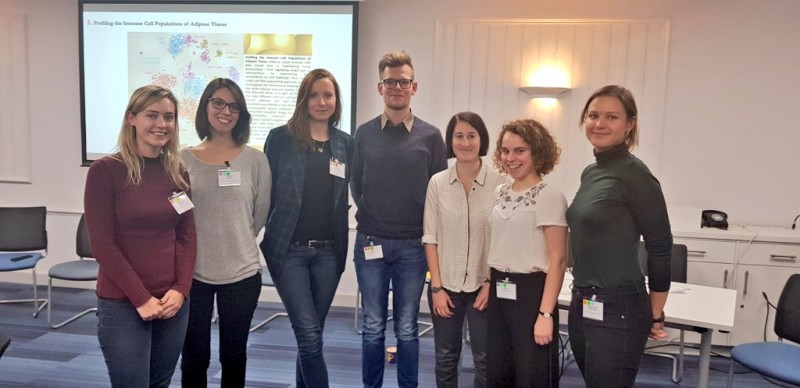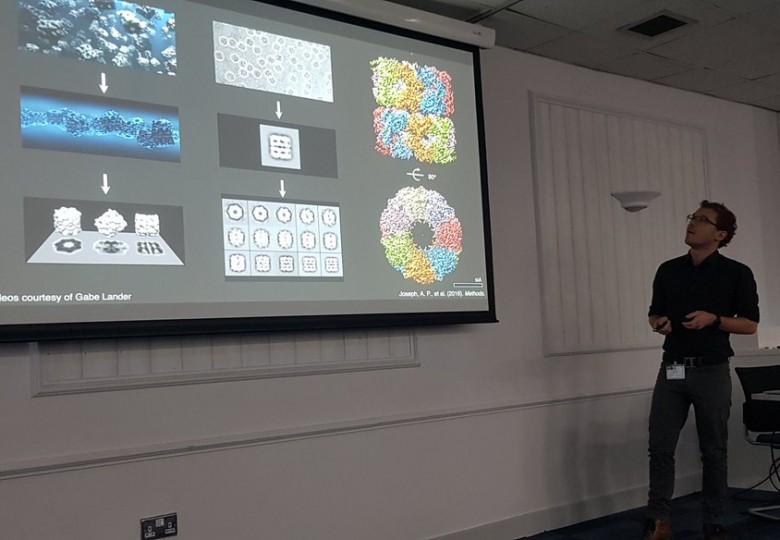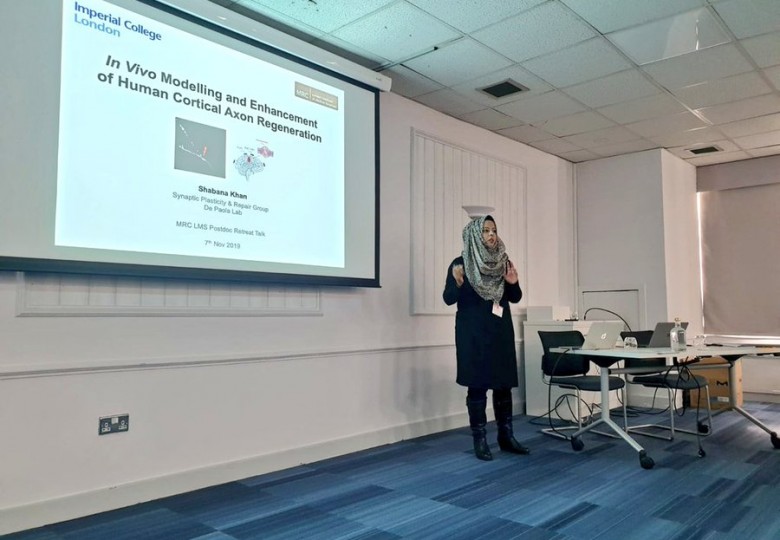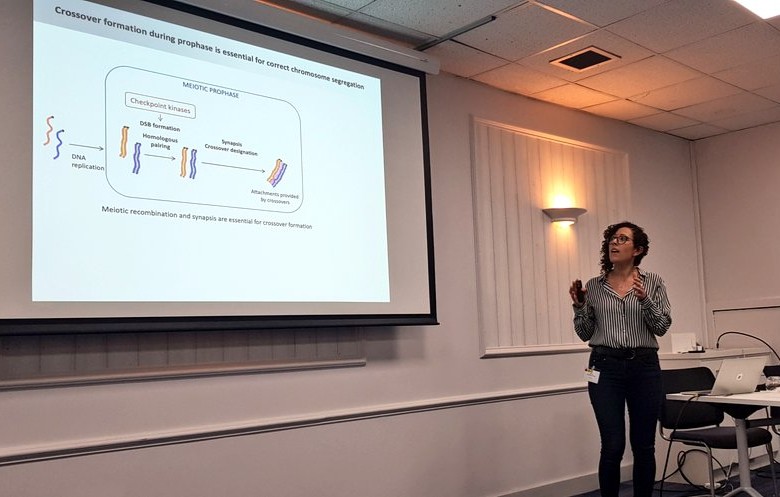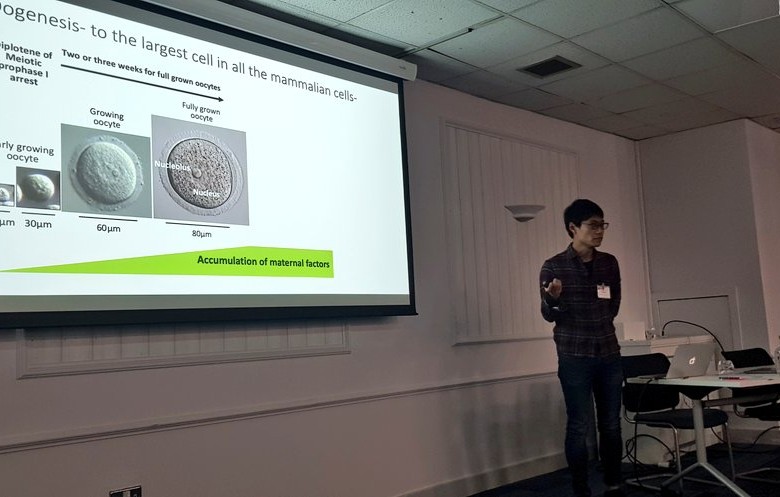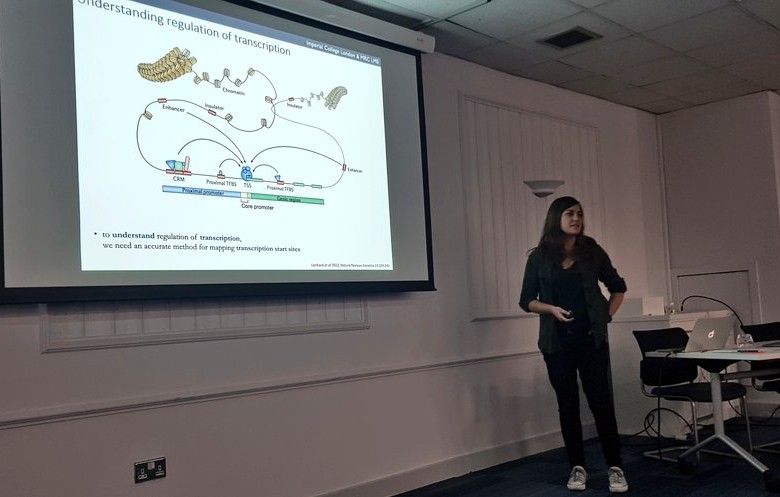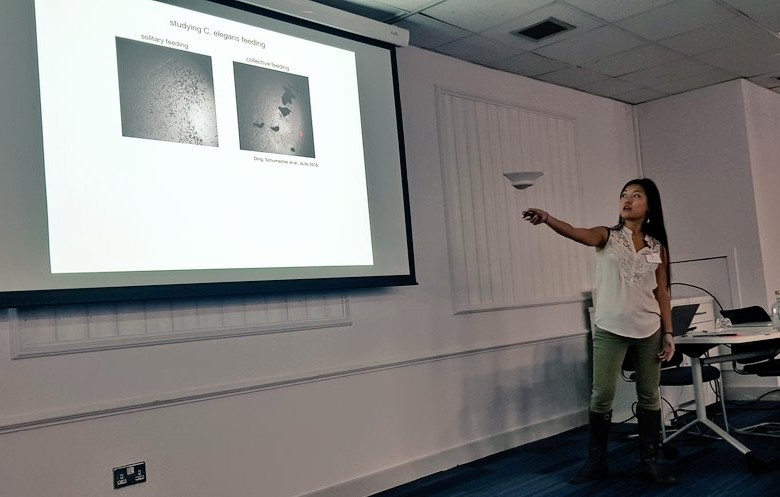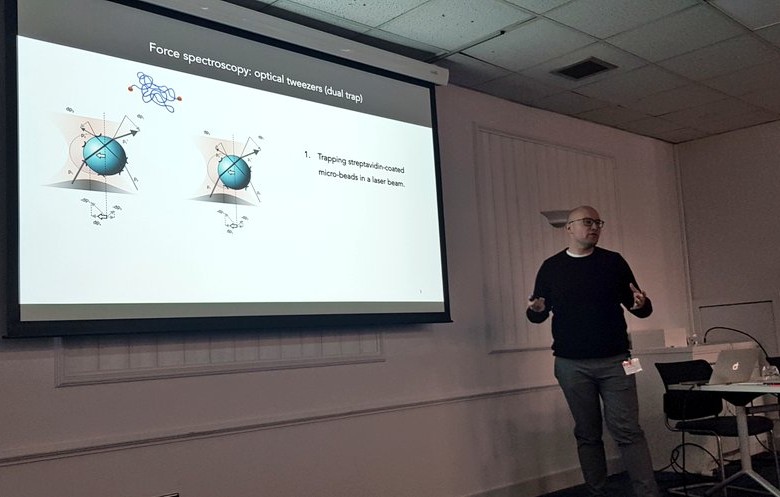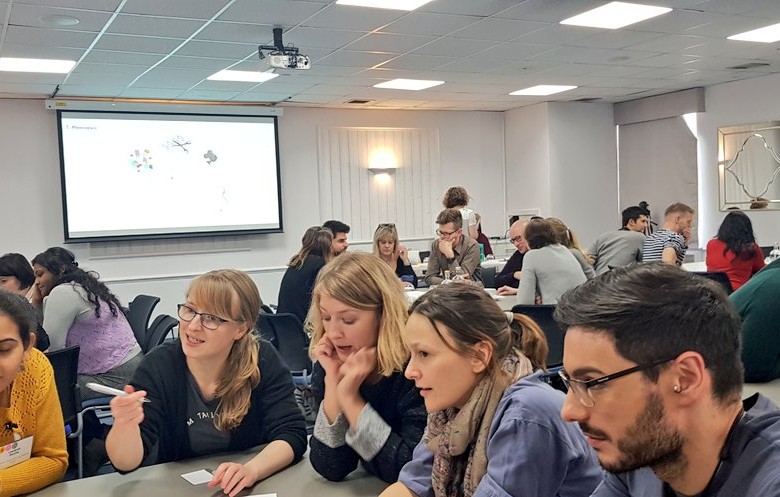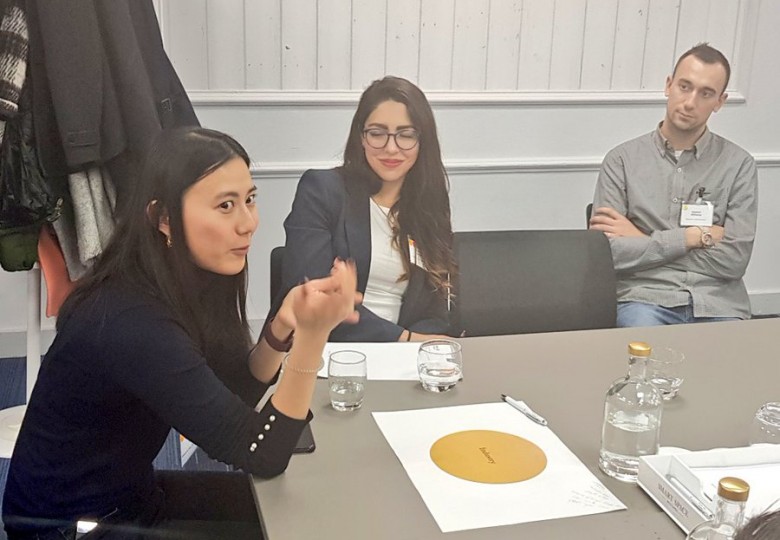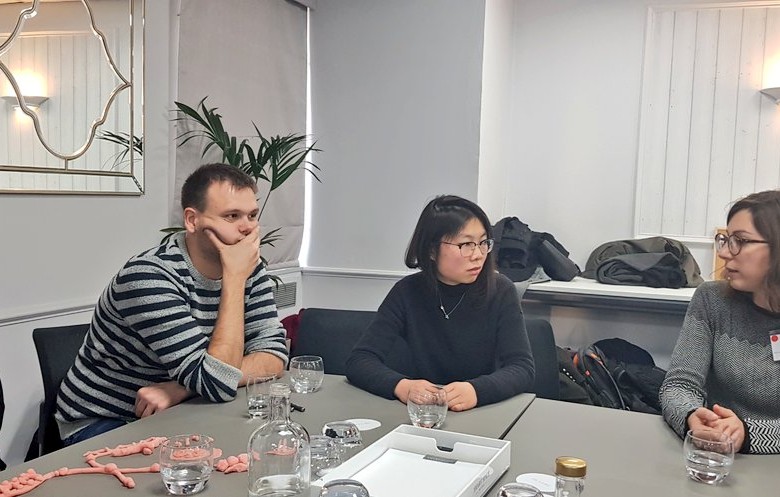On 7 November, our Post-doc Committee hosted their 5th annual retreat at the De Vere Grand Connaught Rooms. The retreat is an opportunity for our post-docs to take part in a programme of sessions which this year included a range of talks on collaborative projects and communication of some amazing new techniques, as well as an opportunity to hear from our facilities and potential career pathways from invited speakers.
Collaboration and cool techniques
The day kicked off with three talks about collaborations at the institute from Sarai Pacheco Pinol from the Meiosis group, Kyle Morris from the Electron Microscopy facility and Shabana Khan from the Synaptic Plasticity and Repair group. Sarai shared more about their collaboration with the LMS Proteomics facility to allow them to elucidate phosphorylation pathways that regulate a stage of meiosis. Shabana share more about how they are collaborating with the UK Dementia Research Institute at Imperial College London to implement a new technique with their current imaging technology to measure axon regeneration. Kyle’s talk was an insight into the electron microscopy technique but also about the collaborative project they were working on with the Telomere Stability and Repair group here at the LMS. Kyle was later awarded the prize for “best collaborative talk” at the retreat many of the post-docs who attended were overheard saying inspiring the talk was and how Kyle’s passion for the beautiful protein structures the technique helps them uncover was infectious.
One of the organising committee shared this about Kyle’s talk:
“It was a talk that left me speechless in the best possible way. It was truly inspiring. I think many of my peers at the start of the day just knew electron microscopy as another technique, but after Kyle’s talk, we all want to use it in our research and collaborate with Kyle and the EM team.”
The second session of talks was all about some of the cool techniques that our post-docs have developed or are developing. There were four talks in this session from Yuki Hatanaka from the Reprogramming and Chromatin group, Nevena Cvetesic from the Computational Regulatory Genomics group, Artur Kaczmarczyk from the Single Molecule Imaging and Serena Ding from the Behavioural Genomics group. From bioiluminescent bacteria to optical tweezers, these talks offered a lot of food for thought for how our post-docs could apply these new techniques to their research. But it was ultimately Yuki who was awarded the prize for “best cool techniques talk” as they shared more insights into a technique they use for the development of early mouse embryos by reducing protein expression.
Career exploration
The second part of the day was spent discussing different career paths available to scientists and what it takes to get there, with people who have gone on to do a range of careers post-PhD. There were representatives from science communication, publishing, science policy, industry, academia and funding to allow our post-docs to explore careers they may or may not have considered before. After three rounds of the career booth sessions, the representatives from each career option was invited to take part in a panel discussion where questions such as “what’s the biggest issue with science” and “how do you cope with failure and success in your career” were tackled sparking a healthy debate amongst all attendees with many different perspectives from all career paths.
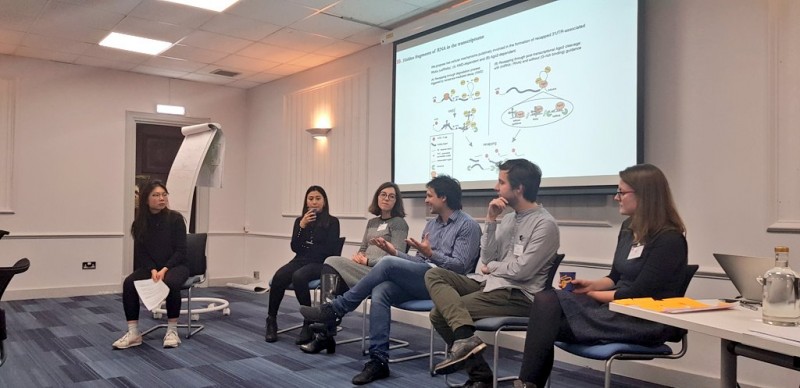
Prizes were also awarded for “best graphical abstract” and “best scientific image” which had been voted for by everyone in attendance at the retreat and awarded to Shabana Khan and Helen Ray-Jones respectively.
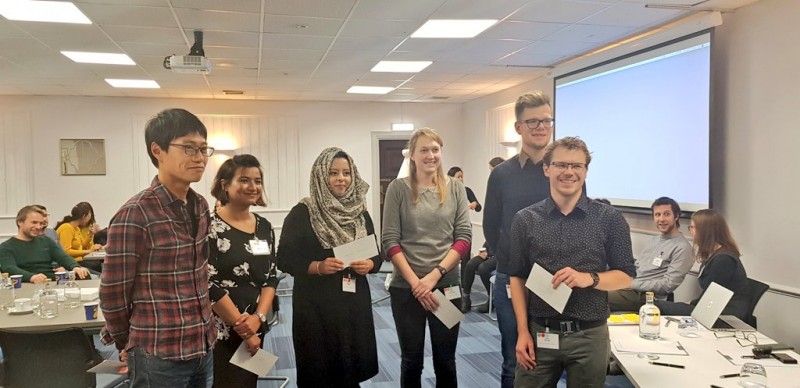
Overall, the 5th annual post-doc retreat was another huge success with lots of food for thought for all our post-docs in and outside of the lab. A huge thank you and congratulations also goes to the Post-doc committee for another successful event to allow networking and collaboration for our post-doc community.
